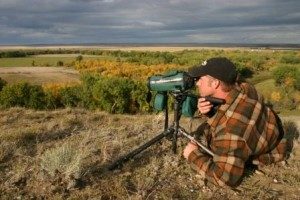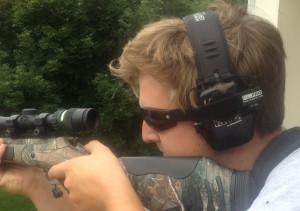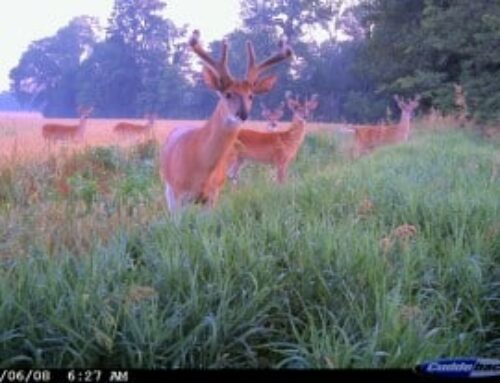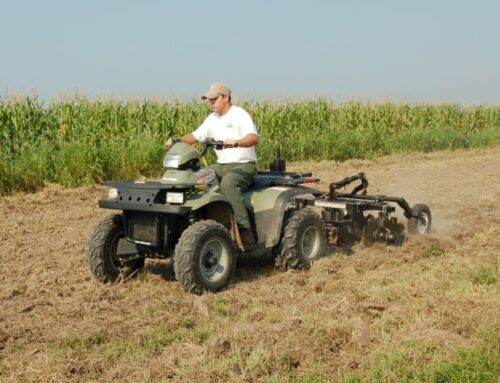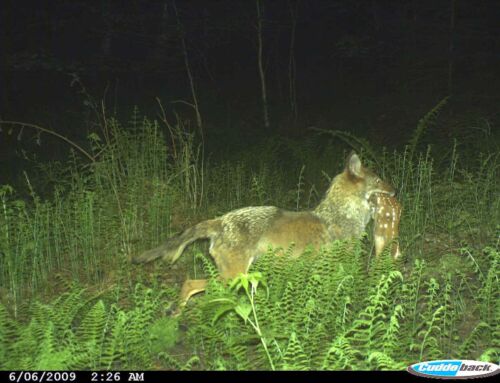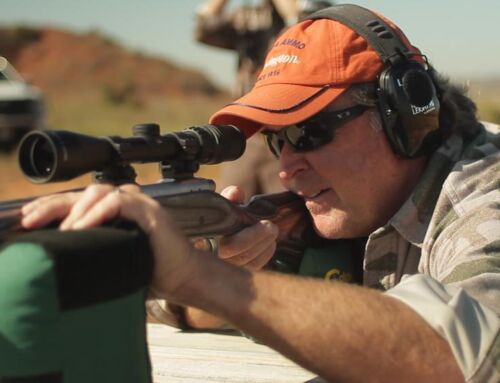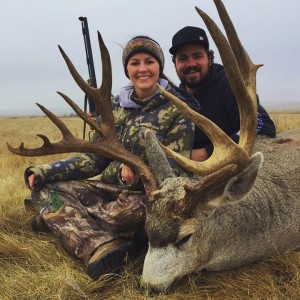 Hunting big deer up in Saskatchewan one time, I met a guy, let’s call him Mark, from Maryland.
Hunting big deer up in Saskatchewan one time, I met a guy, let’s call him Mark, from Maryland.
“Heard you got your buck,” I said, “Congrats.”
“Yeah, a small one,” Mark replied. “I couldn’t take it anymore. I’d sat in that blind for 3 straight days, 9 hours a day. I was going crazy. I don’t like that kind of hunting. I said what the hell and shot this buck, just to shoot something.”
I peeked into the bed of his guide’s truck. Up there in the land of giant deer, where a 140-class buck is marginal and a 160 is very possible if you put in your time and get lucky, my new friend had shot a yearling 8-pointer that scored, tops, 70 inches.
I felt bad for Mark. I’m sure he felt he’d wasted $7,000 on the hunt. But he could have avoided that situation when he’d booked his trip. Before he plunked down a deposit, he should have called the outfitter and grilled him on all aspects of the hunt. The outfitter is a great guy and a straight shooter. He would have told Mark that he’d be sitting on stand for many hours each day, waiting for a quick chance at the buck of his dreams. He would have known exactly what he was in for. Since he didn’t like that style of hunting, Mark could have rethought the trip and booked a more suitable hunt someplace else.
Before you book an out-of-state hunt with an outfitter, call and ask questions, questions and more questions. What is the country like? Will I be sitting in a stand or blind all day, or will I be moving around? It is hard climbing? Will I still-hunt? Make sure an outfitter’s methods jibe with your style of hunting. It’s a huge part of planning an out-of-state trip.
Plan Wisely The earlier you start planning a hunting trip, the better. Many Western and Midwestern states have deadlines, typically in late winter or spring, for applying for deer and big game tags. While you’re out of luck for this fall, it’s never too early to start planning a hunt for 2023 or 2024.
Go online and check out the websites of states or provinces you’d like to hunt. Review population and harvest data for your target game. Work your mouse until you find the phone numbers and email addresses for state or regional wildlife biologists. Contact these experts and ask them about the health of herds, areas where the trophies live, areas where pressure is lightest, etc. Download maps and regulations.
On some websites, you’ll find a list of licensed outfitters. These are the guides you’ll want to talk to. Phone and email as many as possible. Again, ask questions, questions and more questions. Knowledge is power!
Get In Shape
Once you’ve settled on a place to hunt, and shelled out a big deposit to an outfitter, get your body and mind in shape. An area might have a good population of 6×6 elk or goats, but if you can’t climb the mountains and get to them, your chances of scoring are low. And you ought to get fit, even if you plan a less-taxing hunt for deer, bears or pronghorns. The fitter you are, the better and safer you’ll hunt. Go on a cardio and light weight-training program months or a year before your hunt. If you’ve been out of the gym awhile, consult your doctor.
Gear Up
I once shared a tent camp with a guy in Montana’s Bob Marshall Wilderness. On the first night of our elk hunt, it snowed 8 inches. The hunter had no rain gear, and no rubber pac boots. He borrowed some stuff from his guide and me, but he still froze and was miserable.
He didn’t see many elk either, because he was so cold and grumpy that he hunted only a few hours each day. And he brought along a cheap binocular. He was unable to glass the few elk his guide pointed out. He went home without a bull and out 6 grand.
Don’t head west or north with 3 or 4 crammed duffels (if you fly, an airline will charge you a hundreds of bucks for excess baggage). Carry one large duffel with all the right stuff. Plan well and pack efficiently. Above all else, take the best optics you can afford. If you can’t see and shoot a buck or a bull clearly, why go?
Practice Your Shooting
Months before your hunt, start shooting your bow, muzzleloader or rifle. Multiple trips to the gun or 3-D range over the summer will give you confidence in your weapon. When you arrive in camp, shoot your bow or gun before hunting to make sure it is still dead-on.
Don’t Guide The Guide
I’ve seen it happen in many camps across North America. A guy, generally a whitetail hunter from back east, shows up to hunt mule deer, elk, whatever. The first day he lets everybody know what an awesome hunter he is. That was his first mistake.
Our hero hunts a couple of days, but doesn’t score. Then he starts guiding his guide, saying, “Let’s move to a new spot, or try this, it works for me back home.” Days pass and he keeps riding the guide and outfitter, until everybody in camp is miserable. The dude generally gets skunked.
When you arrive at a new destination, chill. Be a nice guy and forge a bond with your guide and the other hunters in camp. If you did your homework and selected a reputable outfitter, chances are your guide will be skilled. It might take several days or a week to score, but the guide and outfitter know what they are doing and they want you to kill out. Or you might not kill, that’s why they call it hunting. But if you go with the right mind-set, you’ll have a great time in awesome game country. That, my friend, is money well spent.

